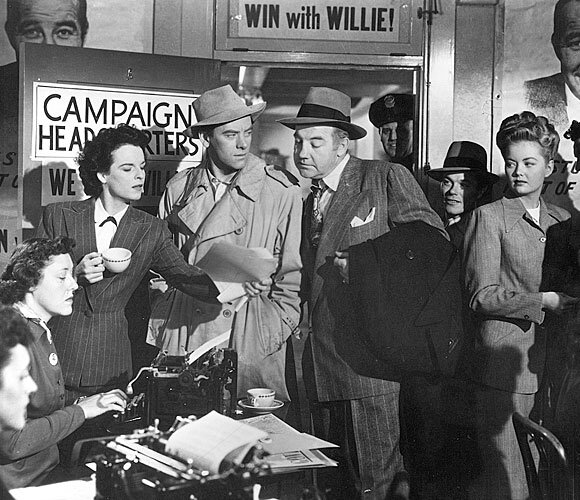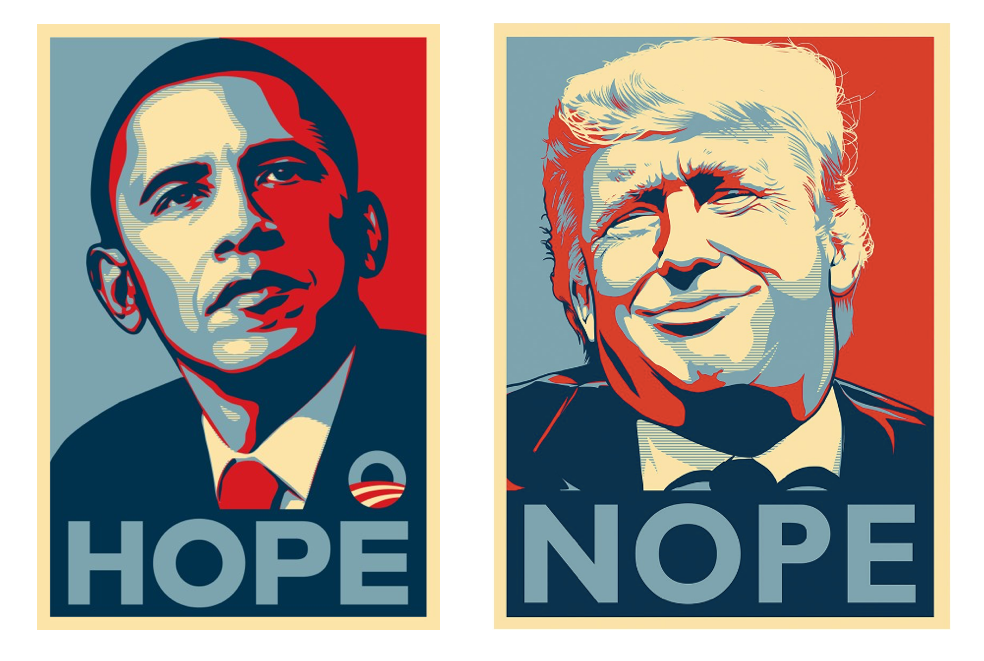‘All the King’s Men’: Observations on a Tarnished Politician and a Jaded Fixer
‘Man is conceived in sin and born in corruption and he passeth from the stink of the didie to the stench of the shroud. There is always something.’
Willie Stark, ‘All the King’s Men’
I recently read the American political novel ‘All the King’s Men’ by Robert Penn Warren. Published in 1946, it was awarded the Pulitzer Prize, and in 1949 it was adapted into a film of the same name that won the Oscar for Best Picture.
‘All the King’s Men’ follows the political career of Willie Stark, a liberal populist in the South during the 1930s. His story is narrated by Jack Burden, a reporter who is employed as a personal aide when Stark becomes Governor.
It’s a tale of infidelity, betrayal and corruption under the throbbing Southern sky; of debt, restitution and nameless despair; of broken promises, broken relationships and broken people.
Sugar-Boy puts the throttle to the floor. The Cadillac speeds along the white slab in the dazzling heat, past the corner drugstore and the tin-roofed, white-framed houses. There’s a smell of sweat, stale cigars and gasoline fumes. There are hushed conversations with men in well-pressed suits and two-color shoes. There’s coarse liquor drunk in shady bars. And an iron bed under the electric fan.
It’s a compelling read.
I was struck by a number of themes suggested by the two central characters.
The Tarnished Politician
Willie Stark, 'the Boss,’ starts out as an idealistic lawyer, a humble, well-meaning man looking to represent the ordinary country folk he cares about.
‘My study is the heart of the people…Your will is my strength.’
Through bitter experience he transforms into a charismatic populist, who can rouse a crowd with his plain speaking, tub thumping oratory.
‘This is the truth; you are a hick and nobody ever helped a hick than the hick himself. Up there in town they won’t help you. It is up to you and God, and God helps those who help themselves.’
Stark climbs the political ladder by exposing the corruption and complacency of the incumbent administration.
‘The machine had been operating so long now without serious opposition that ease had corrupted them. They just didn’t bother to be careful.’
But Stark’s own Governorship is tainted by power. Convinced that the end justifies the means, he becomes mired in patronage, bribery and intimidation.
‘Did you ever see the flies stay away from the churn at churning time?’
Let’s consider the fundamentals of Stark’s approach to politics. We may find there are contemporary resonances.
1. Stir ‘em up
The key to Stark’s popularity is his ability to whip up a crowd, to connect with them at a raw and basic level. He realises that it doesn’t matter so much what you say, so long as you can inspire a passionate response.
‘Hell, make ‘em cry, make ‘em laugh, make ‘em think you’re their weak erring pal, or make ‘em think you’re God Almighty. Or make ‘em mad. Even mad at you. Just stir ‘em up, it doesn’t matter how or why, and they’ll love you and come back for more.’
2. Be prepared to sacrifice your dignity
Stark is not afraid of looking foolish or silly. He’s not shy of mockery or ridicule. None of these things constrains him from the pursuit of power.
‘Yeah, I’m Governor, Jack, and the trouble with Governors is they think they got to keep their dignity. But listen here, there ain’t anything worth doing a man can do and keep his dignity.’
3. Write off the costs against the gain
Stark is prepared to make concessions to achieve his goals. He doesn’t realise that compromise can be corrosive.
‘All change costs something. You have to write off the costs against the gain.’
4. Don’t shy away from dirt
Stark had a religious upbringing and he retains a Calvinist conviction that all men are tainted by original sin.
‘Dirt’s a funny thing… Come to think of it, there ain’t a thing but dirt on this green God’s globe except what’s under water, and that’s dirt too. It’s dirt makes the grass grow. A diamond ain’t a thing in the world but a piece of dirt that got awful hot. And God-a Mighty picked up a handful of dirt and blew on it and made you and me and George Washington and mankind blessed in faculty and apprehension. It all depends on what you do with the dirt. That right?’
5. Just fix it
Ultimately Stark becomes a ruthless operator, blind to the ethical responsibilities of office. He believes that every man and woman has a price, and he’s prepared to pay it.
‘My God, you talk like Byram was human! He’s a thing! You don’t prosecute an adding machine if a spring goes bust and makes a mistake. You fix it.’
The Jaded Fixer
'There is nothing more alone than being in a car at night in the rain. I was in the car. And I was glad of it.’
Jack Burden is a student of history, a former journalist who acts as a fixer for The Boss. He’s smart and can be charming when he wants to be. But he’s also a detached, world weary, hard drinking cynic ‘hiding from the present... [and taking]refuge in the past.’
‘Maybe the things you want are like cards. You don’t want them for themselves, really, though you think you do. You don’t want a card because you want the card, but because in a perfectly arbitrary system of rules and values and in a special combination of which you already hold a part the card has meaning. But suppose you aren’t sitting in a game. Then, even if you do know the rules, a card doesn’t mean a thing. They all look alike.’
We come to realise that Burden’s misanthropy and nihilism derive from a broken heart. He is a man who has been in love too long.
'If something takes too long, something happens to you. You become all and only the thing you want and nothing else, for you have paid too much for it, too much in wanting and too much in waiting and too much in getting.'
Stark sets Burden a task: to dig up some dirt on a respected former Judge who has crossed him politically. It’s fascinating to watch Burden in action, combining his historical research and journalistic skills in pursuit of his prey.
Author Robert Penn Warren - 1950. (AP Photo)
1. There is always something
Burden goes into his investigation with the conviction that there is inevitably a clue to be found, a secret to be unearthed, a truth to be revealed. There is always something.
‘For nothing is lost, nothing is ever lost. There is always the clue, the canceled check, the smear of lipstick, the footprint in the canna bed, the condom on the park path, the twitch in the old wound, the baby shoes dipped in bronze, the taint in the blood stream.’
2. Try the obvious first
Burden is conscious not to walk past the simple solutions, the straightforward resolutions to a problem.
‘Finding someone in a city if you can’t call the cops is quite an undertaking. I had tried it often enough back when I was a reporter, and it takes luck and time. But one rule is always to try the obvious first.’
3. Ask it quick and fast
Burden’s interviewing style is forceful and direct. He likes to cut to the chase and surprise a response.
‘I asked it quick and sharp, for if you ask something quick and sharp out of a clear sky you may get an answer you never would get otherwise.’
4. Listen for the hollow sound
Once past the direct questions and obvious explanations, Burden switches to a more speculative approach. He plugs away at a problem looking out for something that doesn’t quite tally.
‘When you are looking for the lost will in the old mansion, you tap, inch by inch, along the beautiful mahogany wainscoting, or along the massive stonework of the cellarage, and listen for the hollow sound.’
5. Sleep on it
Finally Burden leaves room for intuition and gut response. After he’s investigated every highway and byway, after he’s examined every clue, he sleeps on the problem.
‘I had reached that stage of the problem where there is nothing to do but pray. That stage always comes. You can do all you can, and pray till you can’t pray, and then you go to sleep and hope to see it all in the dream, by grace.’
Inevitably Burden’s investigation reaches a melancholy conclusion. ‘All the King’s horses and all the King’s men couldn’t put Humpty together again.’ But there is a sense that Burden ends the story less detached, recognising that we cannot live as isolated individuals: there are connections between us all – between our choices and responsibilities, and between our past, our present and our future.
'Reality is not a function of the event as event, but of the relationship of that event to past, and future, events… Direction is all.'
Time for a festive break.
Next post will be on Thursday 9 January 2020.
Have a restful Christmas.
See you on the other side, I hope!
'You know that it's the time of year,
When certain things that you see and hear
Remind you of the holidays.
When I hear the bells ring
I think of you, and I start to sing.
You hold me tight all through the night.
Peace and calm is in your arms.
Silent nite
Feels so right,
All is calm, all is bright.
Silent nite.’
No. 261






